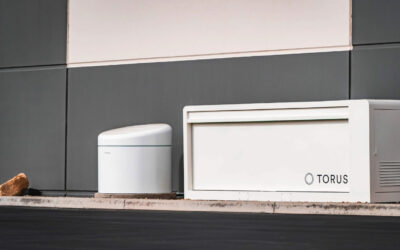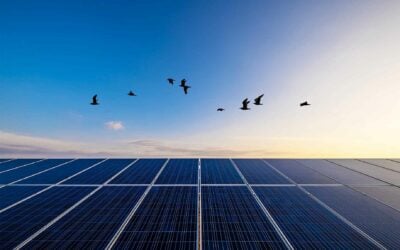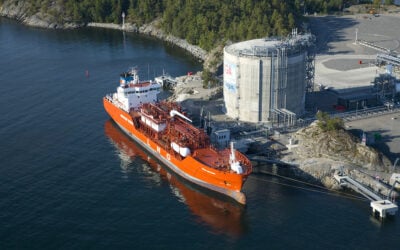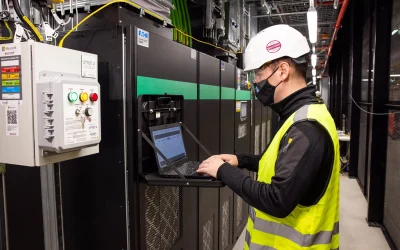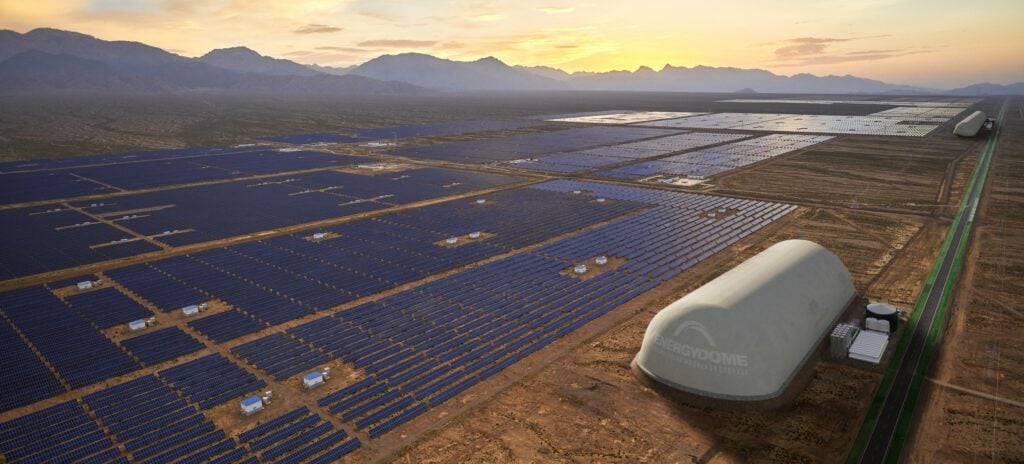
Startup Energy Dome has scored its first commercial licensing agreement for its carbon dioxide-based energy storage solution, with Italian power engineering firm Ansaldo Energia.
The agreement allows Ansaldo Energia to commercialise Energy Dome’s technology in its core markets where it has a historic commercial presence. Energy Dome has two products: the carbon dioxide (CO2) battery and its Energy Transition Combined Cycle (ETCC) technology.
Enjoy 12 months of exclusive analysis
- Regular insight and analysis of the industry’s biggest developments
- In-depth interviews with the industry’s leading figures
- Annual digital subscription to the PV Tech Power journal
- Discounts on Solar Media’s portfolio of events, in-person and virtual
Or continue reading this article for free
The CO2 Battery is its core underlying technology product while the CO2 ETCC is a proprietary turbine technology which can combine with existing gas turbines and the CO2 Battery. The group claims the latter enhances the battery to be able to have multiple working modes in addition to charge/dispatch.
The two companies plan to start building the first ETCC and CO2 Battery commercial plants by the beginning of 2023. Ansaldo plans to integrate the ETCC into its gas turbine product portfolio and to offer the CO2 Battery as a product within its energy transition portfolio.
Ansaldo Energia will provide the turnkey engineering, procurement and construction (EPC) package using Energy Dome’s Front End Engineering Design (FEED). The companies have not revealed the power output of the planned commercial units but Energy Dome has previously suggested that 25MW/100MWh or 200MWh plants could be built once the tech is ready for market.
Ansaldo Energia is a power engineering firm specialised in building power plants, power equipment including heavy duty gas and steam turbines and generators, as well as nuclear activities. The license agreement follows on from a memorandum of understanding (MOU) signed last year for the firm to test the technology readiness level of Energy Dome’s solution.
The Milan-based startup raised US$ 11 million in a series A three months ago. Its technology uses a thermodynamic cycle to storage and dispatch energy with a 4-24 hour duration.
It ‘charges’ by drawing carbon dioxide from a large atmospheric gasholder – the Dome – and stored under pressure in a high density liquid state at an ambient temperature. To dispatch the energy, it is evaporated and expanded into a turbine to generate electricity and returned back to the Dome.
On its website, Energy Dome compares its technology to compressed air energy storage (CAES) and liquid air energy storage (LAES). It says its CO2 battery has an energy storage density 10-30 times that of CAES although only two-thirds that of LAES. However, it says that LAES requires cryogenic temperatures making the system complex and ‘uncompetitive’, while the liquid in its solution can be stored at ambient levels.
Energy Dome is one of several companies offering novel energy storage solutions based around compressed gas though some have come and gone. Netherlands-based Corre Energy raised €20 million last year for its green hydrogen production and compressed air energy storage solution, before listing on the Irish stock market later in the year. Canada-based Hydrostar is seeking approval for a 400MW advanced compressed air (A-CAES) plant in Ontario.
SustainX merged with another company and abandoned its efforts to create CAES technology which didn’t require huge underground caverns in 2015. Lightsail Energy, founded in 2008, attempted something similar with big VC backing (including Bill Gates and Peter Thiel) but shut down in 2018 (its founder recently wrote publicly about it for the first time).

